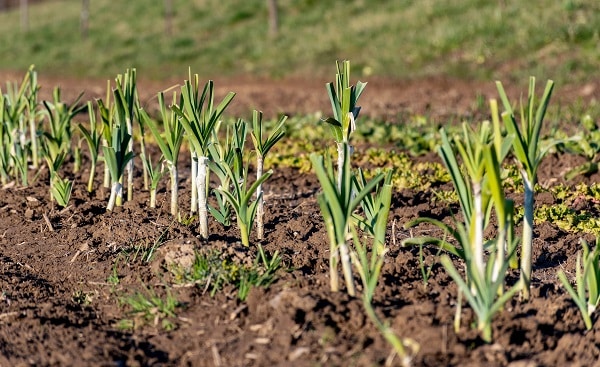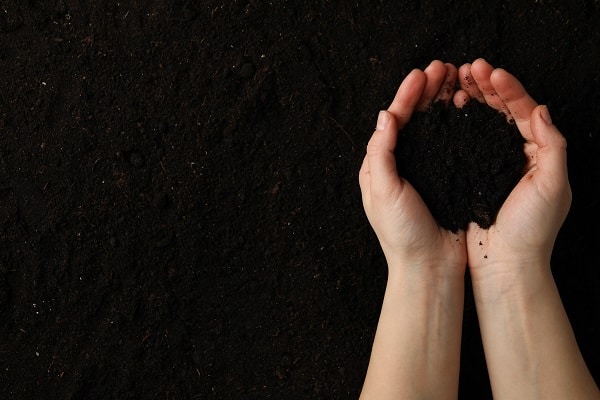Are you looking for a way to enjoy fresh food with zero inputs from chemicals and pesticides? Well, if so, look no further than growing your own! Growing your food has gained popularity over the past few years due to its multiple benefits. From improved wellness outcomes to lower grocery bills, this trend doesn’t seem to be going anywhere anytime soon. This article explores why more people are turning to cultivate their produce – and maybe convince you it’s time for you to give it a go too!
Contents
Starting With Growing Your Food
Growing your food can be a rewarding and fulfilling experience, but you have to start somewhere. The beginning stages are all about planning. Research what kind of plants you want to grow and what type of environment they need to thrive. Consider if you’re going to set up an indoor garden or find an outdoor space such as a garden bed or patch of land. Gather the necessary supplies so you have everything ready before getting started. Get educated: read up on how to properly care for your plants, feed them, and keep them healthy.
Once you’ve knuckled down the preparation part, it’s time to get planting – this is where the excitement begins! Growing your food is the first step in creating a sustainable lifestyle that will leave you feeling empowered and connected with nature.
The Benefits Of Growing Your Food

It’s no secret that growing your food is making waves in the health and wellness community, but why? Below are some of the main benefits associated with cultivating your produce:
Increased Nutritional Value

One of the major benefits of growing your own food is its increased nutritional value. When you grow and harvest your produce, you can do so when it is ripe, maximizing its nutrient content. Most store-bought fruits and vegetables are picked before they are ripe in order to keep them looking good longer on the shelf.
This means they may not have had all the time they need to develop the full range of vitamins and minerals that a ripe fruit or vegetable can provide. Growing your food eliminates this issue and ensures that you get maximum nutrition from each bite of harvest.
Reduced Cost Of Groceries

Growing your food is a fantastic way to save money on groceries. Purchasing fresh produce from the grocery store can be expensive, and growing your food ensures you get the best-tasting, most nutritious harvest possible while saving money. It is more cost-effective to purchase garden supplies such as fertilizer and seeds at the onset, instead of buying large amounts of produce each week or month.
You also don’t have to worry about paying extra if something is out of season since you will normally always have a steady supply of what you need right in your backyard. A vegetable garden is an incredibly efficient way to watch your wallet and nutrition levels thrive simultaneously!
Pesticide-Free Environment

Growing your food has many benefits, but nothing is more tangible than a pesticide-free environment. While store-bought produce may be farmed with pesticides, growing fruits and vegetables on your own plot of land is the surest way to ensure total protection from harsh chemicals.
This can make a tremendous difference for those living in areas with high levels of air pollution or where food is rife with pesticides; not only does this eliminate the risk of ingesting these potentially harmful substances, but it also helps preserve local ecosystems that rely heavily on nutrient cycling and healthy biodiversity. By growing your food organically, you’re helping create an ecosystem that’s safer and more sustainable for everyone.
Improved Soil Quality

While growing food at home has many great benefits, one of the most important is improved soil quality. Soil quality improves when you regularly grow plants in it, as they remove nitrogen-rich compounds from air pollution while they photosynthesize. This process provides valuable nutrients to the soil that help new plants grow. Additionally, killing weeds and other pests increases biodiversity, further enriches the soil.
These efforts can revitalize otherwise poor soils back to their original nutrient-dense states – allowing them to sustain diverse plant life and serve as an effective carbon sink for emissions. So growing your food gives you access to healthier products and improves the overall soil conditions in your garden or backyard.
Reduced Waste

Growing your food is a great way to reduce the amount of waste in landfills. Imagine producing just the right amount of food for yourself and your family instead of overbuying and throwing out what you don’t need. This helps the environment and saves you money since you’re no longer wasting resources or overpaying for pre-packaged foods.
Growing your food also means knowing exactly how and where it was grown, giving you peace of mind and assurance that it was done safely and responsibly. Furthermore, if you choose to compost your own food waste, you can actually use it as fertilizer for future harvests – reducing the need for chemical fertilizers and helping to keep your garden in balance.
Good For Mental Health

For many, gardening can be a great outlet for relieving stress and increasing mental health. Growing your food offers you the satisfaction of seeing something go from mere seeds to a healthy harvest, taking months to cultivate while providing physical exercise that helps improve mental well-being. It can give you a strong sense of accomplishment by developing skills you may not have thought you had, such as patience, determination, and resilience.
Gardening is great therapy for lonely people, as it encourages interaction with others who share the same hobby. Connecting with nature has been known to reduce stress and improve your mood, making gardening an ideal activity for those looking to increase their mental well-being.
Start Growing Your Own Food Today!
In conclusion, growing your food can have numerous benefits, from improving soil quality, reducing waste, and helping with mental health without harsh chemicals. It is an incredibly rewarding experience that connects you to nature while allowing you to produce healthier and safer products for yourself and your family. So if you’ve ever thought about gardening, now is the time to start! Pick some seeds and begin your journey toward growing your sustainable food source. You’ll be glad you did.